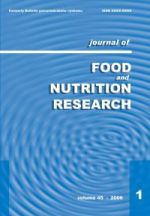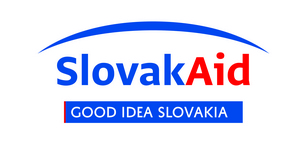Scientific journal
Journal of Food and Nutrition Research
Summary No. 2 / 2020
Buhač, T. – Amidžić Klarić, D. – Klarić, I. – Nigović, B. – Brusač, E. –
Assessment of active ingredients and metal impurities in phytoestrogen-containing food and dietary supplements
Journal of Food and Nutrition Research, 59, 2020, No. 2, s. 87-97
Ana Mornar, Department of Pharmaceutical Analysis, Faculty of Pharmacy and Biochemistry, University of Zagreb, Ante Kovačića 1, 10000 Zagreb, Croatia. E-mail: amornar@pharma.hr
Received 22 January 2020; 1st revised 29 February 2020; accepted 25 March 2020; published online 29 April 2020.
Summary: The success of the food and dietary supplement industry in bringing to market safe and high-quality phytoestrogen-containing products is important for the well-being of an increasing number of post-menopausal women consuming these products. On the other hand, a serious safety issue associated with food and herbal supplements is heavy metal contamination. Direct-injection mass spectrometric (DI-MS) technology has evolved as a powerful tool for screening of active ingredients in food, herbal and dietary supplement samples. In this work the developed DI-MS method provided simple and fast multi-target screening of phytoestrogens in food, raw materials and dietary supplement products without prior analyte separation by chromatography. Phytoestrogen marker compounds were identified in two of four herbal raw material samples and eight of twenty dietary supplement products. As for the heavy metal content determination, graphite furnace–atomic absorption spectroscopy (GF-AAS) was utilized. The average daily intake of heavy metals is well below the recommended tolerable daily intakes if the products are used according to the manufacturer’s instructions, with the exception of one sample.
Keywords: phytoestrogen; metal impurity; functional food; herbal raw material; dietary supplement; regulation
Download:
(pdf, 465.06 Kb, 2160x)










